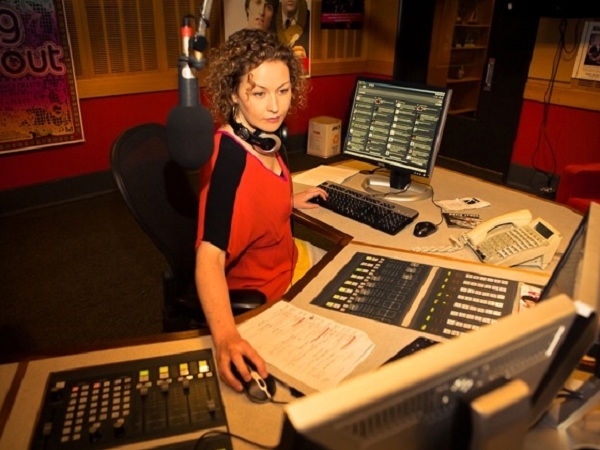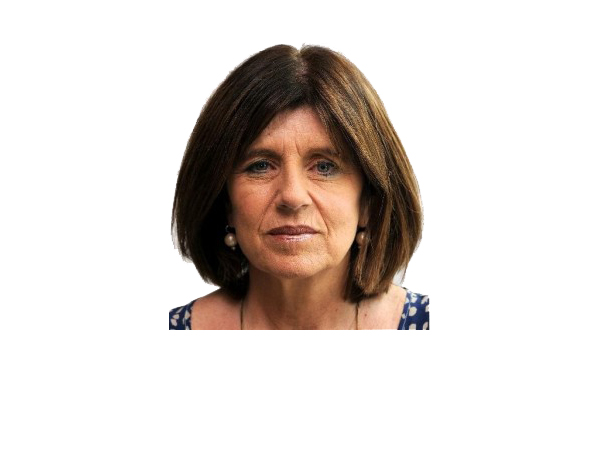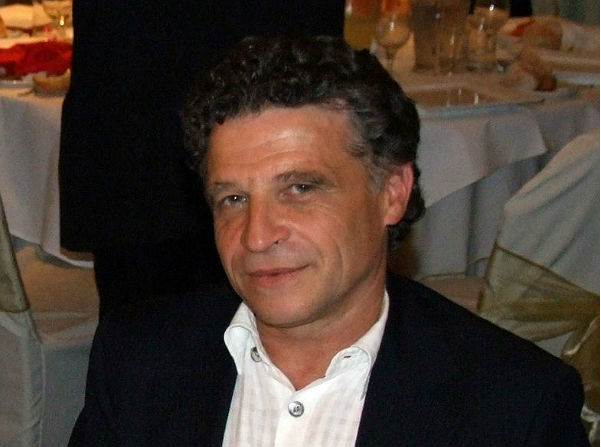By the time you’re getting ready to head home on the train, Cathy Anderson has already spent the day sub-editing the Melbourne edition of MX — a free tabloid publication targeted at afternoon city commuters.
Her own journey has been anything but predictable. Rewind to 1994 and Anderson was completing her Bachelor of Arts (Honours) degree from the University of Wollongong. After graduating, she began working at consumer titles such as Australian Power Boat, which, she says, “was a very interesting time”.
But the 36 year-old says the highlight of her career to date has been her three-year stint at the ill-fated B News, which was Victoria’s highest-circulation gay and lesbian entertainment and lifestyle publication in 2007.
Today, the former Sydney-sider keeps herself busy juggling her MX responsibilities with her freelance work for LOTL (formerly known as Lesbians On The Loose).
Her dream to be lying on a “beach somewhere” retired in ten years time seems unlikely. But as Master of Global Communications student Stephanie De Campo reports, it’s refreshing (and quite rare) to hear from a journalist who is optimistic about their professional future.
What is it like to be a journalist today?
I think it’s very unsettling. Newspapers are changing and there’s talk of a computer-subbing programs which would effectively make a lot of people’s roles redundant.
What are the main challenges to the practice of ethical journalism today?
The constraint of advertising is a big one. There may be pressure if an airline is an advertiser and you want to run some kind of exposé about how they were treating their employees badly. News still wins out. I think you will find though in magazine journalism that this problem is a lot more obvious. You have an advertiser who brings in $20,000, $40,000 or $100,000 a year and if you’re running a bad review of their product which is justified, you’ll inevitably get some problems when running that editorial.
And have you ever been caught in that position before?
At one place I worked, the paper was so focused on their revenue that the decision was made to drop stories altogether rather than run one and incur a negative response from the advertiser. Another story I’m aware of but I didn’t write was a review of a camper-trailer which had problems with the suspension or some sort of mechanical fault. It was bought up by the reviewer and subsequently fixed so in that instance there was recourse to the person involved.
Have you ever thought your work was not objective?
I think that happened a lot when I working on the gay title, B News. You’re coming from a slanted point of view that an injustice has been done, for instance, when the 2004 marriage act was overturned and Howard declared it was only between a man and a woman. Those kinds of issues do get emotive and it can be difficult to convey the news in its purity without putting any spin on it.
How have journalists changed in the last 10 years?
There’s been less of a focus on nitty gritty stuff like grammar and spelling and really basic stuff. A lot of the reporters I work with, whose work I sub, I can’t believe they actually made it through. And I think a lot of reporters are getting very lazy at adapting press releases especially when they’re on a time constraint.
Is journalism endangered?
I think there will always be a place for journalists but the roles are changing. Bloggers are becoming a much more prolific source of information for people, especially if they comment under news stories or if they have their own blog and disseminate news that way. But it’s dangerous because they don’t operate under a code.
You were editor of ‘B News’, what was your greatest achievement from your time spent there?
I think it was just getting it [the publication] out there. It was such a challenge every week and you never knew if you were going to have enough money to run it.
‘B News’ ceased publication in October 2008 and ‘Southern Star’ newspaper launched a Victorian edition to fill the gap. As a former editor of ‘B News’, how did you feel about the announcement?
I knew it was coming, ‘B News’ had a very troubled financial history so it was really just a matter of time. I was very happy that the ‘B News’ team got to go with our sister publication Southern Star and create something new and exciting.
And were you ever told you weren’t doing a good enough job?
At ‘B News’, it was everyday. You can never please everyone. There was never enough lesbian stuff in there, never enough coverage of gay men, trans-gender issues or bisexuals and the inter-sex people. One time I made a major stuff up on the headline, the worst of my career [It was a spelling mistake]. At those times you just say well ok, that was a product of lack of time and resources and you cop it on the chin and just say you’ll do better next time.
How important are these niche publications and are the media doing enough to cover issues affecting the gay and lesbian community?
We [B News] would do news items of community interest that wouldn’t appear in mainstream press. Stuff they would pass by because they don’t have enough room and they don’t deem it to be valuable or important enough.
How are you using social media in your day-to-day work as a journalist?
At MX we have a celebrity Twitter column and we use MySpace to find profiles of bands or people that will send us information about themselves. We used Facebook on the front page of MX the other day; we printed a picture of the woman who nicked off to NZ with $10 million.
With many advertisers moving online, how confident are you in MX’s ability to not only survive but prosper?
I have no doubt that it will survive, because it is backed by the company [News Limited] where there are resources behind it to fund it. Because MX is an afternoon edition paper it is quite unique and we print 95,000 to 100,000 copies of it a day so it’s certainly well read.
To what extent does MX break new stories?
The way MX works is that anything that gets published in the Herald Sun doesn’t get used. The reporters that do break news, it’s anything that happens between midnight and midday before we go to press at 12.30pm.
If you had to give advice to journalism graduates, what would you say?
Find your inner mongrel because you’re going to need it. Build up your portfolio and never say no to anything. We had a work experience student in the other day who had a moan about something and it was just deplorable. He had attitude and you just can’t afford to. Have an idea about where you want to go and be persistent because editors are lazy people. Once you’re in, it’s not what you know it’s who you know and people will start recommending you or throwing work your way.
Where will I find you in 10 years time?
Hopefully lying on a beach somewhere retired — but not on my salary. I think my job may morph into something online, but I would like to think I will still be involved in print media.
How realistic is it to think you’ll be working in newspapers in 10 years time?
I think it’s realistic, but it will definitely have changed quite a bit and it will be very much multi-media based. You’ll have a lot of people whose skills will have to adapt and change to new programs and new ways of delivering news.
In a word how would you describe your journalistic style?
Fluid or adaptable. I’ve worked for a lot of media in my time and I’m still learning something new everyday.






